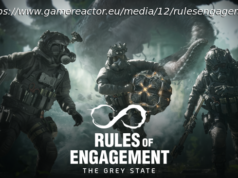After an algorithm ended his career, Mark Quinn, 45, hired it to start a new one.
Mark Quinn’s story usually begins with an ending: a seasoned tech executive at companies like Apple and Amazon who was, in the ultimate tech irony, laid off because of AI. But the headline misses the real story. The layoff wasn’t the end. It was the moment the world changed for him, and the beginning of a journey that saw him turn the very technology that made his job obsolete into his most intimate collaborator, career counselor, and even parenting coach.
This isn’t just a story about technological disruption; it’s a deeply human account of adaptation in the face of obsolescence. It’s a roadmap for what comes after the initial shock, when the fear subsides and a single, terrifying question remains: Now what?
For Quinn, the answer began with a revelation. Before his departure in May 2023, he had an experience that shook him to his core. An operational challenge that had taken him and his team four months of intense work to solve was presented to GPT-4 as an experiment.
“In 30 seconds, it spit out not only the answer but the complete methodology, what we thought were the clever adaptations we figured out,” Quinn recalls. “When I saw that, I realized the world has changed. It was that moment that I said we got to be all in.”
He was all in, but soon he was all out. The very efficiency he helped implement by ramping down a 3,000-person human workforce with AI ultimately eliminated his own role. He was a ghost in the machine he had helped build.
But instead of succumbing to the fear that grips so many, Quinn made a conscious choice. He decided to learn the language of the ghost.
“For me, it was a moment of a wake-up call to realize what is really happening,” he says. “The world had been flipped upside down. The world is no longer round. Now it’s a triangle, and I have to navigate in this new world order.”
His first step was to reject the common perception of AI. He implores people to do the same. “Do not think of AI as a tool. Do not think of it as a search engine,” he insists. “These companies have done themselves a huge disservice by making them look like chatbots. They are not. The more that you can think of AI as a collaborator, as the world’s best expert in whatever you need sitting right there next to you, the more you get out of it.






